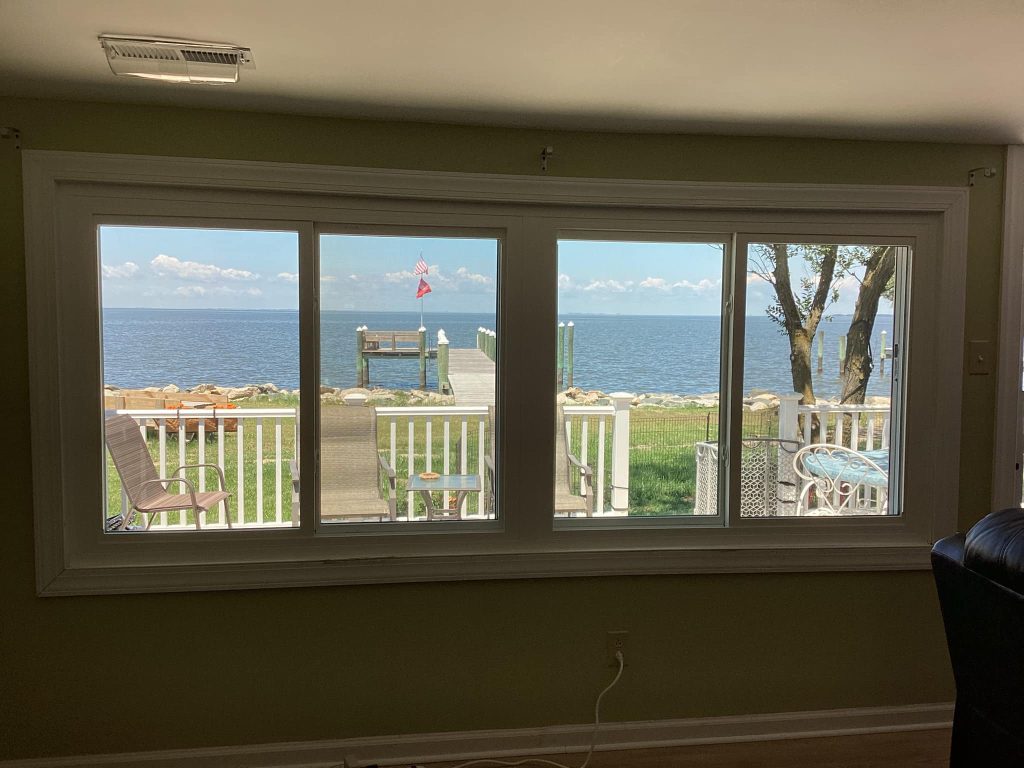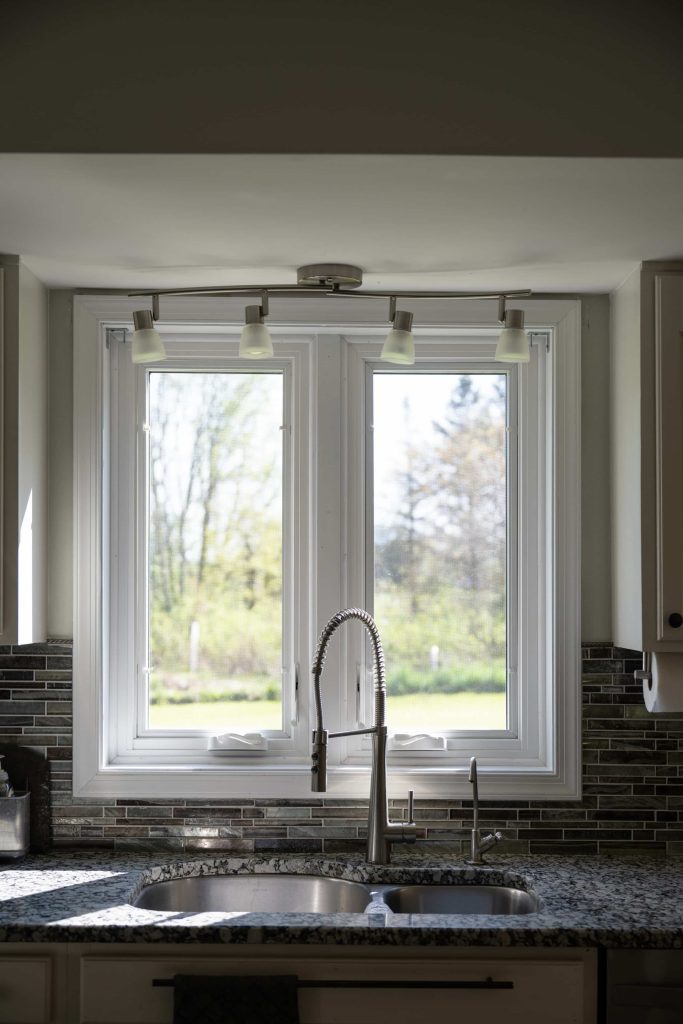Replacing Windows in Mobile Homes: Your Complete Guide
Your mobile home gives you affordability, flexibility, and mobility. Like any other home, it also requires regular maintenance and occasional upgrades. One great investment is to replace your windows. The windows of any home play a big role in energy efficiency, noise reduction, and the overall look and feel of the house.
Considering replacing windows in a mobile home? There are a few things to take into consideration that are unique to manufactured homes. That said, you’ve still got plenty of great options for updating and improving your windows.
Let’s take a deep dive into the topic of replacing windows in mobile homes.
Mobile Home Windows vs. Standard House Windows
As you probably know, mobile homes and traditional homes are different types of constructions. Mobile homes are typically built offsite and transported to their destination while standard homes are built onsite. Manufactured homes, therefore, are usually smaller, lighter, and built with less dense materials than standard homes. This all impacts the types of replacement windows that work best in a mobile home.
Some key differences in traditional windows vs. mobile home windows include:
- Size: Mobile home windows are typically smaller than standard house windows, reflecting the smaller size of mobile homes.
- Materials: The windows of manufactured homes are typically made of vinyl or aluminum frames instead of heavier wood.
- Installation: Mobile home windows are installed differently, often requiring a special mounting flange to fit into the narrow wall cavities of mobile homes.
Exploring Different Types of Mobile Home Windows
The good news is that when it comes to replacement windows for manufactured homes, you’ve got plenty of options. Almost all the standard window configurations will work in a manufactured home. Just make sure to choose a window model designed specifically for a manufactured home.
With so many window choices available, your biggest challenge might just be picking the window type you like best.
Double-Hung Windows
Double-hung windows are one of the most common window styles in residential buildings. These windows have two movable sashes that slide up and down, providing more ventilation options than single-hung windows.

They are easy to clean and maintain, making them a popular choice for mobile homes. Double-hung windows also offer versatility in terms of ventilation, as you can adjust them to allow airflow from the top, bottom, or both simultaneously.
Pros of Double-Hung Windows
- Improved ventilation
- Easier to clean from inside the home
- Enhanced energy efficiency
- Available in different materials to fit different budgets
Cons of Double-Hung Windows
- Often more expensive than single-hung of sliding windows
- Complex installation may require professional help
- Heavier than some alternative window types
Sliding Windows
Sliding windows operate on horizontal tracks, with one or both sashes sliding open. They are easy to operate, making them a practical choice for many homeowners. Sliding windows typically consist of two or more sashes, with at least one of them being movable. They offer a contemporary and streamlined look while providing ample natural light and ventilation.

These windows are often used in bedrooms, living rooms, or areas with horizontal window openings. They are an excellent space-saving option, as they do not require extra clearance for opening like casement or awning windows.
Pros of Sliding Windows
- Easy to operate
- Provide good ventilation
- Typically less expensive than double-hung windows
- Suitable for wider, shorter openings common in mobile homes
Cons of Sliding Windows
- Only half the window can be opened at a time
- May be more challenging to clean
- Tracks can accumulate dirt and debris
- Not as energy efficient as some other window types
- Limited style options compared to other window types
Awning Windows
Awning windows provide a great blend of functionality and style. They open outward from the bottom, providing ventilation while keeping out the rain. They typically operate using a crank mechanism or a push-out system and often sit higher on walls to allow for airflow while maintaining privacy.
Awning windows are suitable for various areas in a home, including bathrooms and kitchens where both ventilation and protection from the elements are desired.
Pros of Awning Windows
- Good ventilation even during a light rain
- Good energy efficiency
- Can be left open in light rain
- Good option for privacy when installed higher on walls
Cons of Awning Windows
- Limited size options due to weight of the sash when open
- Not suitable for window air conditioning units
- Requires some clearance space outside the home
- Can be more expensive than sliding or single-hung windows
Picture Windows
Installing picture windows in a manufactured home can dramatically transform the interior, creating a sense of openness and connection with the outdoors. Picture windows are fixed windows that do not open. They are designed to provide expansive views and allow maximum natural light into a space.

Picture windows are often large and feature a single pane of glass, offering unobstructed views of the surrounding landscape or cityscape. They are commonly used in living rooms, dining areas, or other spaces where homeowners want to showcase scenic views or dramatic cityscapes.
Pros of Picture Windows
- Can provide gorgeous views and maximize natural light
- No moving parts reduces maintenance needs
- Can make small spaces feel larger and more open
- Enhanced curb appeal
Cons of Picture Windows
- Do not provide ventilation
- Can lead to increased heat gain in summer and heat loss in winter
- More challenging and expensive to replace if damaged
Casement Windows
A casement window is a type of window that is hinged on one side and opens outward like a door. It’s typically operated using a crank mechanism and is known for its sleek and modern design, making it a popular choice for both residential and commercial buildings.

Casement windows offer excellent ventilation and unobstructed views since the entire sash can swing open.
Pros of Casement Windows
- Excellent ventilation
- Very energy efficient
- Can be angled to direct breezes into the home
- Easy to operate
- Provides unobstructed views when open
Cons of Casement Windows
- May interfere with outdoor walkways or decks when open
- Not suitable for window air conditioning units
- Can be more expensive than single-hung or sliding windows
Bow or Bay Windows
Bay and bow windows create a visually appealing and functional feature in a home. They both protrude from the exterior wall, creating additional interior space and enhancing the exterior aesthetics. They work well as a focal point in a room and offer lots of natural light. They are a great option for replacing windows in a double-wide mobile home.
A bay window typically consists of three windows, with a larger center window flanked by two smaller windows on the sides. The side windows are angled to create a panoramic view. Bay windows can have a flat or polygonal shape, adding architectural interest to a room.
Bow windows are like bay windows but have a curved or rounded shape, typically featuring four or more windows. The curved design creates a gentle arc, providing a softer and more elegant appearance. Bow windows allow for a wider view and increased natural light compared to bay windows.
Pros of Bay and Bow Windows
- Creates additional interior space and sense of openness
- Provides panoramic views of the outdoors
- Can serve as a focal point in a room
- Versatile construction options (ex: window seat or display area)
Cons of Bay and Bow Windows
- Significantly more expensive than standard window types
- Complex installation often requires professional help
- Can be challenging to properly insulate
- Can be difficult to cover with standard window treatments
8 Signs It’s Time to Replace the Windows in Your Mobile Home
An important part of being a homeowner is knowing when it’s time to update or replace a feature of the home. When should you think about replacing windows in a mobile home? There are plenty of ways your windows could be telling you that they need an upgrade.
- Drafts or air leaks: Poorly fitting or warped windows could be letting in cold drafts in the winter or hot air in the summer. Either way, your energy bills will show it.
- Visible damage: Cracked or broken glass or warped frames are all signs that you need to replace your windows sooner rather than later.
- Heavy outside noise: Is it hard to think inside your own home because you can hear the neighbor’s dog barking? Do motorcycles, airplanes, or train whistles keep you up at night? New windows can dramatically reduce outdoor noise levels, giving you a much more comfortable living experience.
- Outdated appearance: Old, worn-out windows detract from the visual appeal of your mobile home, making it look outdated or unattractive. Window replacement can enhance the overall aesthetics and resale value of your property.
- Difficult operation: Having trouble opening or closing your windows? Do they stick or won’t stay open? It’s possible that the frame has warped or the hardware has simply worn down.
- Condensation between panes: If you notice moisture or fog between the panes of your window, that’s a strong indication the seal has failed, and the windows need to be replaced.
- Rot and water stains: Moisture damage can warp your window casings along with the materials around your window. In these situations, you may need some repair work along with new windows.
- Age: Sometimes your windows may be working well enough, but if they’re 15 to 20 years old, it’s time to start planning for their retirement.
How to Choose the Right Windows
You’ve decided to do something about the windows in your mobile home, but what exactly? Before you dive into the project, here are some questions to consider.
- Should you repair or replace? Small problems, like a broken latch or worn crank, can be repaired. If your windows are getting old, energy inefficient, or have larger issues like cracks and warps, you’ll probably want to replace them.
- What material should you choose? You can always pick aluminum or wood for your windows, but we strongly recommend vinyl windows because they’re durable, energy-efficient, low-maintenance, and cost-effective.
- What is your budget? Replacing all the windows in your mobile home can add up fast. Larger windows and more complex windows (like picture windows) will also cost more. A knowledgeable window installation team can help you explore different financing options.
- How important is energy efficiency? Energy efficient windows do cost a premium price, but they can offer long-term savings, especially as energy costs continue to rise.
- What security features do you want? If you want the highest level of security, look for windows with multi-point locking systems that secure the window at various points along the frame.
- Do you need professional window installation? A professional installer can ensure the proper fit, sealing, and insulation of your windows. Always make sure you hire a professional with experience in mobile homes.
REPLACING YOUR MOBILE HOME WINDOWS
If your windows are begging to be replaced, don’t wait. Replacing windows in a mobile home can improve energy efficiency, muffle annoying outdoor noises, and add beauty and resale value to your property. Of course, that all assumes you hire a great window installer.
West Shore Home is the leading replacement windows expert, specializing in all types of homes, including mobile homes. Our team of company-trained installers have extensive experience in replacing windows in mobile homes. If you’re not sure what type of windows would work best for your home, schedule a free consultation with one of our design consultants. Our team will come out to your home and provide a quote that’s good for 12 months, so you don’t have to commit right away.




